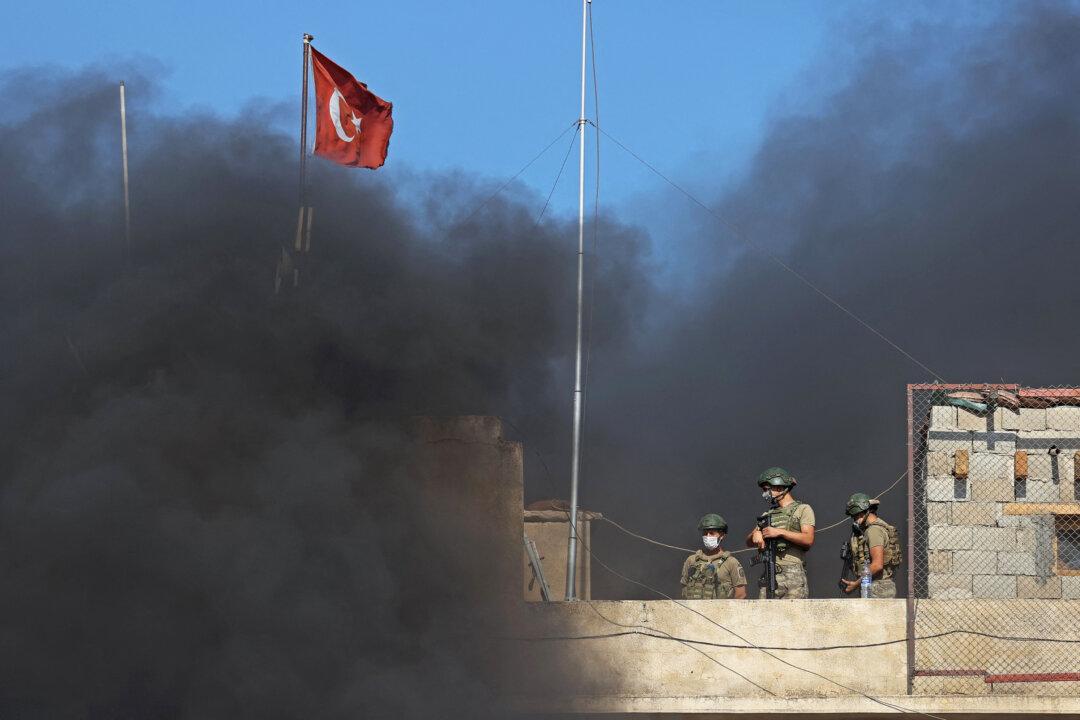U.S. officials expressed concerns this week that a possible Turkish invasion of Syria could harm the United States’ ability to defeat ISIS and trigger the release of thousands of terrorists from jails.
“The Department of Defense is deeply concerned by escalating actions in northern Syria, Iraq, and Turkey,” said Pentagon press secretary Brig. Gen. Patrick Ryder in a statement. “This escalation threatens the Global Coalition to Defeat ISIS’s years-long progress to degrade and defeat ISIS.”





